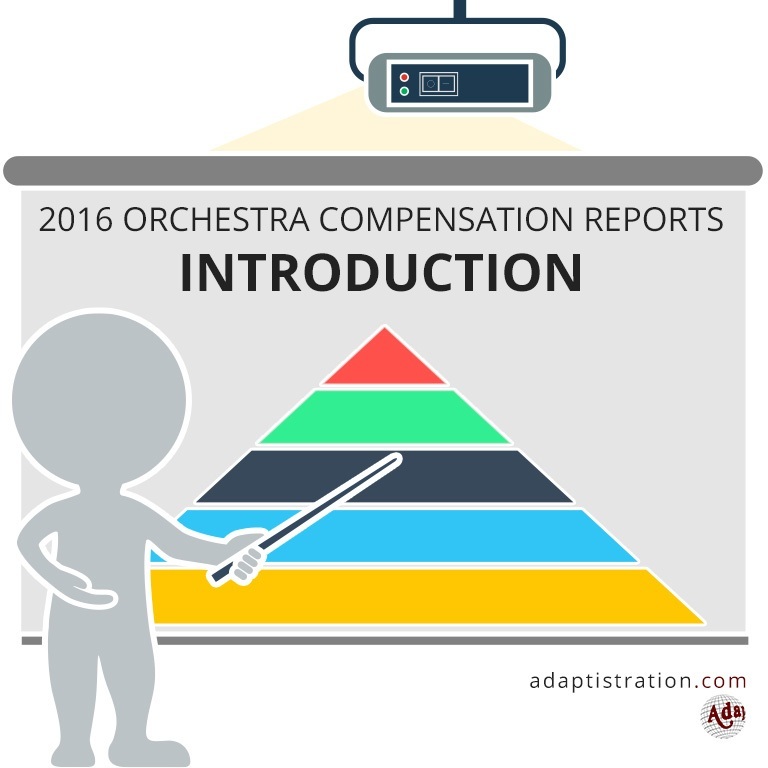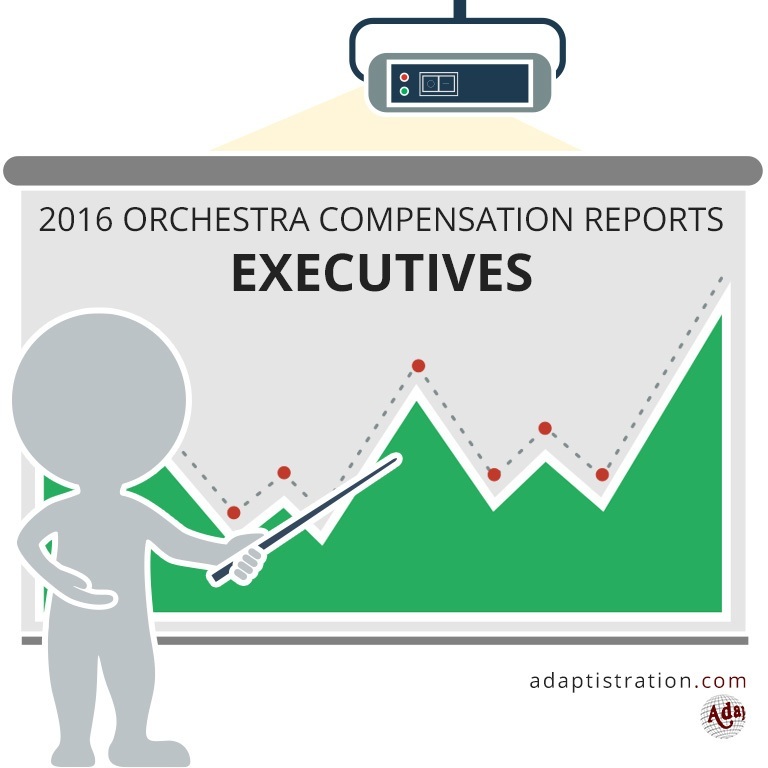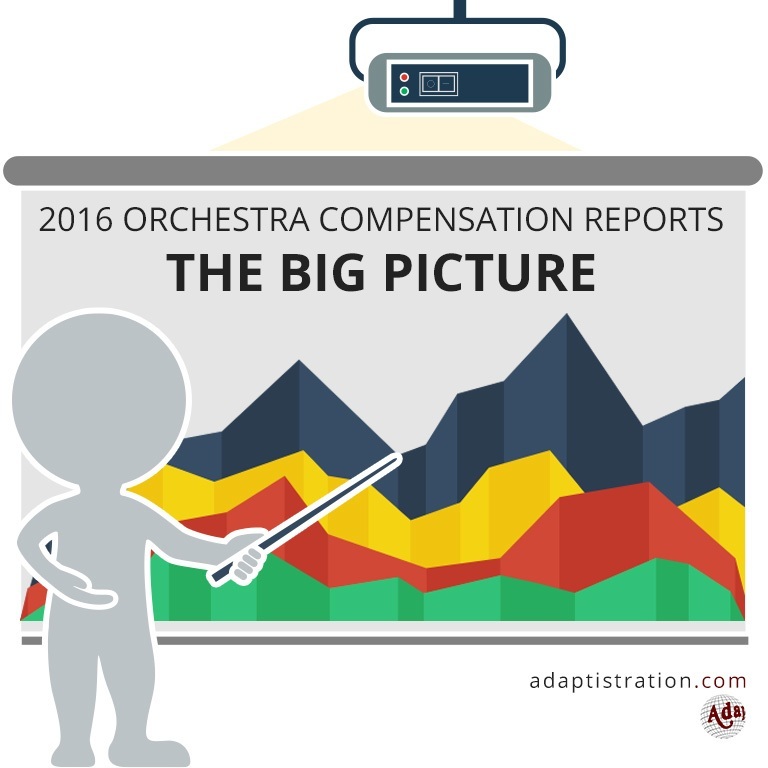This year’s ICSOM Music Director Report doesn’t reveal any new benchmarks in earning, in fact, the average music director compensation for the 2003-2004 season decreased from the previous season…
Where The Numbers Come From
All data presented in these reports coincide with the corresponding documentation from the 2003-2004 season. In order to provide information that is as accurate as possible, data is gathered from the following sources:
- Music Director Compensation figures were obtained from their respective orchestra’sIRS Form 990 for the 2003-2004 concert season.
- Total Ensemble Expenditures were also obtained from each respective orchestra’s IRS Form 990 for the 2003-2004 concert season.
- Musician Base Salary figures were obtained from compensation records collected by the American Federation of Musicians and IGSOBM (Seattle) for the 2003-2004 concert season.
The Music Director Compensation figures include the combined amounts reported as what the IRS classifies as “compensation” and “contributions to employee benefit plans & deferred compensation”. However, each orchestra does not always report figures for the latter category. Furthermore, some individuals have compensation listed separately for conducting and non conducting duties (such as Seattle’s Gerard Schwarz and Chicago’s Daniel Barenboim).
The Musician Base Salary figures collected by the AFM for ICSOM ensembles are done so on an annual basis and reported in a booklet entitled Wage Scales & Conditions in the Symphony Orchestra.
Adaptistration makes no claim to the accuracy of information from documents compiled or reported by external sources. If you have reason to believe any of the information is inaccurate or has changed since reported in any of the above sources and you can provide documentation to such effect, please feel free to send in a notice.
What The Numbers Don’t Show
It is important to remember that the numbers shown do not always convey a complete compensation picture. For example, a music director may have had a large increase in salary because they were leaving a position and per terms of their contract they may have received a sizeable severance or deferred compensation package. As such, the cumulative compensation may artificially inflate or reduce their annual earnings.
Furthermore, these figures may not reflect bonuses or other incentive payments, therefore underreporting what executives may actually earn. Also missing from the figures are expense accounts and other perks, which are rarely reported on the IRS Form 990’s. As such, the cumulative compensation for music directors may or may not be more than what is listed.
Additionally, even though there are indications noting when individuals were not employed for a full season, the documents used to gather data do not indicate how much of the season an individual received a salary.
The “Musician Base Salary” figures do not include any additional payments offered by some organizations such as voluntary outreach services, and minimum overscale and/or seniority payments, all of which are more common for ICSOM musicians as opposed to their ROPA peers. Finally, these figures do not include any of the opera or ballet organizations which are members of ICSOM or IGSOBM.

How Things Compare To Last Year
Much like the case with ICSOM executive directors, it was too difficult to establish an average percentage increase for the 2003-2004 season. Nevertheless, based on the average compensation and percent change from the previous season, we come up with the following information:
- According to these figures, the average ICSOM music director earns 828% more than an average ICSOM base salary musician.
- Compared to the figures from the 2002-2003 season, the average ICOSM music director’s increase in compensation actually experienced negative growth at -3.19%.
- Unlike the 2002-2003 season, none of the music directors earned over $2 million.
Who Earns The Most?
Perhaps unsurprisingly, all of the conductors in the top rung of compensation are from the largest budget orchestras:
- Chicago Symphony’s Daniel Barenboim earned $1,999,446
- New York Philharmonic’s Lorin Maazel earned $1,909,155
- San Francisco Symphony’s Michael Tilson Thomas earned $1,582,460
- Philadelphia Orchestra’s Christoph Eschenbach earned $1,422,000
- Los Angeles Philharmonic’s Esa-Pekka Salonen earned $1,260,639
- Cleveland Orchestra’s Franz Welser-Most earned $1,000,360
Who Gained The Most?
- The Cincinnati Symphony increased music director compensation by 32.62%
- The Buffalo Philharmonic increased music director compensation by 21.12%
- The Cleveland Orchestra increased music director compensation by 14.39%
- The Fort Worth Symphony increased music director compensation by 12.47%
- The Charlotte Symphony increased music director compensation by 11.11%
- The Dallas Symphony increased music director compensation by 10.84%
What Happened To The Concertmaster Information?
No worries, the concertmaster compensation for ICSOM ensembles will still be published. The only difference this year is that they will get their very own report instead of riding their conductor’s coat tails (metaphorically speaking).
Conclusions
The 2003-2004 was a much slower overall season for music directors as those on the very top of the compensation ladder fell back a rung or two. As a result, this had a sizeable impact on the average ICOSM music director compensation which resulted in a lower average compared to the 2002-2003 season. However, the lowest paid music director not in the first or last year of their tenure still witnessed an increase in compensation by $8,000.
Without a doubt, ICSOM music directors occupy the very top of the compensation food chain among all U.S. professional orchestras. In fact, many conductors earn much more than the single compensation figures listed above because they serve as music director in more than one ensemble (commonly referred to in the business as double dipping). Nevertheless, as a reader from yesterday’s article pointed out in his comment,
“I don’t personally care what they pay [our executive director] as long as she can keep the organization thriving and meet [the musicians] demands at the bargaining table.”
I have heard a similar viewpoint expressed among musicians and patrons time again with regard to artistic accomplishment and music directors: if musicians and patrons leave concerts feeling satisfied and excited to return, then the music director is likely worth what they are being paid.
Likewise, it is good for executive board members to keep in mind the perspective outlined in the concluding section of the ROPA Music Director Compensation Report; mainly, those music directors are represented by very skilled private artist managers who are skilled at extracting top dollar for their clients. As such, ask yourself this: is my local orchestra determining music director compensation based solely on peer comparison or do they implement a more complex process?
In the end, even though a $1,260,639 annual compensation is only 1.68% of a $74,857,333 total expenditure, it is in an organization’s best interest to be diligent in making certain they are getting everything they are paying for. Consequently, the process an organization utilizes to reach that decision will likely influence every other aspect of the organization (for better or worse).



As you mentioned, “some individuals have compensation listed separately for conducting and non conducting duties (such as Seattle’s Gerard Schwarz and Chicago’s Daniel Barenboim).”
Do the figures in the chart reflect income from both categories?
Thanks
Christine: Yes all of the figures above include the cumulative compensation for artistic and non-artistic work even if they are listed separately. Since the definition of an average music director encompasses all of those responsibilities it makes the most sense to include them. Thanks for sending in the question.